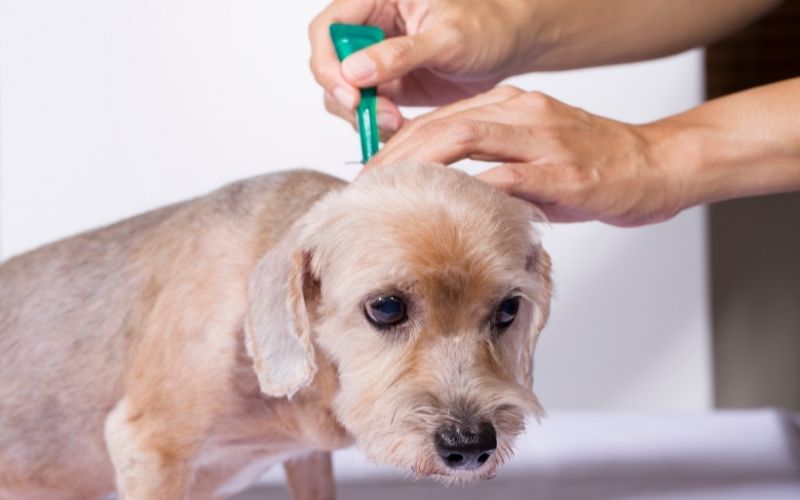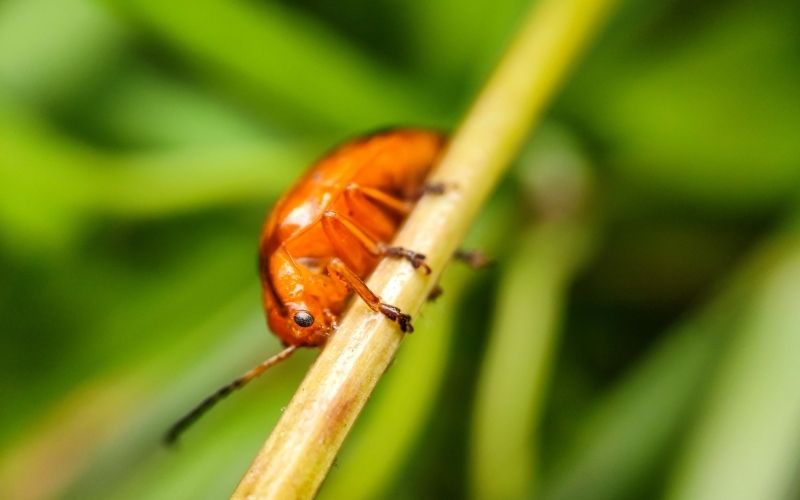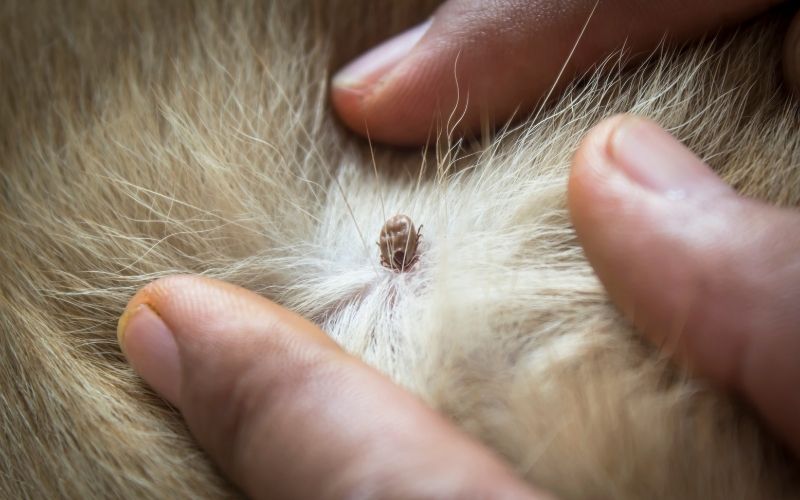Dogs are susceptible to a variety of parasites, some of which can be quite serious.
It’s important to be aware of the most common parasites and take steps to prevent them from infecting your dog.
This article will provide an overview of some of the most common canine parasites, including how they are transmitted and what symptoms to look for.
Ticks and fleas can be problematic for dogs and their owners and, as weather warms up they will be more prolific and much more likely to attempt to infect your pet. Make sure that your dog is protected with effective treatments to provide him with the defences that he needs to avoid these nasty parasites.

It’s also important to remember that prevention is always better than treatment, so be sure to take steps to keep your dog healthy and free of parasites.
When the weather begins to improve and warm up you’ll need to keep an eye on your dog to make sure that he is not suffering from the nasties that take advantage of the warmer conditions.
Fleas
Fleas love warm conditions and, in addition to enjoying the comforts and protection of your house, they thrive in parks and gardens.
Any dormant flea eggs from the previous year will quickly hatch into adult fleas which can then jump onto a passing dog, which will then transport them back to your house.

Flea bites can be irritable to both dogs and humans and can cause rashes and lead to skin infections and hair loss.
Fleas will jump off the dog and make homes in pet beds, furniture, bedding, curtains and other soft furnishings where they will breed and extend their family.
The best way to prevent fleas is to use year round flea treatments for all of your pets with proper flea products.
These products are very effective at preventing fleas as they kill them before they get a chance to lay their eggs and help to stop infestations.
Ticks
Ticks are most commonly found in long grass and wooded areas and can attach themselves to your dog when he brushes past and they will feed off your dog’s blood.

Ticks are not itchy but can cause and spread a range of tick borne diseases which can spread among your pets and also to humans.
Tick diseases
Ticks are horrible and can spread a range of deadly diseases which pose serious health risks to both dogs and human beings.
The major ones are:
Lyme Disease – also known as Borreliosis. Lyme disease is caused by a bacteria which is transmitted through the bite of an infected tick.
Symptoms include fever, loss of appetite, joint pain and lameness.
Lyme disease can be treated with antibiotics but if left untreated it can lead to kidney failure and even death.
Babesiosis – This is a disease that destroys red blood cells leading to anaemia in dogs that are affected.
Erlichiosis – This disease also attacks the red blood cells and can be fatal.
Erlichiosis and Babesiosis are very common overseas so, if you plan to take your dog abroad, then make sure that they are protected against ticks.

Checking your dog
You should aim to check your dog daily and always after walks in warm weather.
If you find ticks then remove them with a tick removal tool which won’t crush or stress the tick. If the tick gets stressed then this will increase the risk of it transmitting disease to your pet.
Fleas can be more tricky to spot but often you will find specks of dirt ( flea faeces ) in your dog’s coat.
Fleas normally gather in warmer areas such as the base of the tail, armpits and groin so pay special attention to these areas when checking.





Prevention is better than cure
The best way to protect your dog against parasites is to use year round preventative treatments.
There are many effective products available which will kill fleas and ticks on contact and also help to prevent infestations.
Talk to your veterinarian about the best option for your dog and make sure that you follow the instructions carefully.
Final words
Remember, parasites are not just a nuisance, they can cause serious health problems for both dogs and humans so it’s important to take steps to prevent them.
By following the simple tips in this article you can help to keep your dog safe and healthy this summer.










